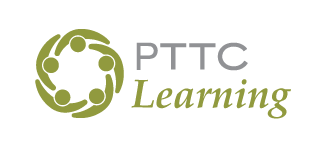Overview of Building Resilient Teams, Coalitions and Communities: Trauma-Informed Strategies for Substance Use Prevention
Enhance your approach to substance use prevention with this 6-week interactive course designed to equip individuals, teams, coalitions, and communities with trauma-informed strategies that reinforce hope and resilience. Grounded in the science of prevention, trauma, and resilience, the course provides substance use practitioners with the opportunity to explore how trauma influences behavior and decision-making, as well as how to develop effective communication, facilitation, and conflict management skills that foster trust, engagement, and collaboration.
Through skill-building exercises, guided discussions, peer interaction, and expert-led consultations, participants will build confidence and expand their capacity to lead with empathy, prevent harm, and strengthen community resilience as part of their everyday prevention work.
Whether you work directly with populations or support prevention efforts at the systems level, this course provides actionable insights and practical tools to increase your team’s effectiveness in preventing substance use and promoting resilient communities, where every voice is heard, and every person has the opportunity to grow.
What You’ll Gain:
- A deeper understanding of trauma-informed principles and their role in substance use prevention
- Practical skills to communicate with clarity and compassion
- Techniques to facilitate meetings and manage group dynamics through a trauma-informed lens
- Strategies to support both personal and collective resilience
When:
Dates: August 20, 27, September 3, 10, 17, 24, 2025
Time:
12:00 PM – 1:30 PM Alaska
1:00 PM – 2:30 PM Pacific
2:00 PM – 3:30 PM Mountain
Facilitators:
 Annette Chastain is a Licensed Clinical Social Worker from The Confederated Tribes of Warm Springs, Oregon. She has over 30 years of experience in prevention and mental health consultation across a variety of settings, including outpatient services, community trainings, psychiatric day treatment, elementary, middle, and high schools, early childhood and infant/toddler care, parent training, in-home skills training, and as a community mobilization trainer.
Annette Chastain is a Licensed Clinical Social Worker from The Confederated Tribes of Warm Springs, Oregon. She has over 30 years of experience in prevention and mental health consultation across a variety of settings, including outpatient services, community trainings, psychiatric day treatment, elementary, middle, and high schools, early childhood and infant/toddler care, parent training, in-home skills training, and as a community mobilization trainer.
 Dr. Natalie Turner-Depue is the Director of the Center for Trauma Education and Community Health (C.teach) and the CLEAR Trauma Center at Washington State University in Spokane. A national trainer in the Attachment, Self-Regulation, and Competency (ARC) framework, Dr. Turner-Depue specializes in Children’s Mental Health, K-12 Education, and the application of ACEs and Complex Trauma research within systems using an Implementation Science approach. She is the co-developer and Project Director of CLEAR (Collaborative Learning for Educational Achievement and Resilience), a trauma-informed model designed for educational settings. With a focus on sustainable trauma-informed systems, Dr. Turner-Depue has trained and consulted with over 20,000 professionals nationwide.
Dr. Natalie Turner-Depue is the Director of the Center for Trauma Education and Community Health (C.teach) and the CLEAR Trauma Center at Washington State University in Spokane. A national trainer in the Attachment, Self-Regulation, and Competency (ARC) framework, Dr. Turner-Depue specializes in Children’s Mental Health, K-12 Education, and the application of ACEs and Complex Trauma research within systems using an Implementation Science approach. She is the co-developer and Project Director of CLEAR (Collaborative Learning for Educational Achievement and Resilience), a trauma-informed model designed for educational settings. With a focus on sustainable trauma-informed systems, Dr. Turner-Depue has trained and consulted with over 20,000 professionals nationwide.
Session Objectives:
By the end of each of the respective Sessions, participants will be able to:
Session One: Welcome, Introductions, and Getting Started: Trauma-Informed Prevention
- Define a trauma-informed approach to substance misuse prevention
- List six principles of a trauma-informed approach
- Create team and coalition agreements based on a trauma-informed approach.
Session Two: The Human Brain, Trauma, and Resilience
- Explain a model for integrating the human brain’s function with behavior.
- Identify examples of inner dialogue, automatic responses, and triggers/activators.
- Demonstrate a chosen self-regulation technique to a peer
Session Three: Preparing to Communicate with Clarity and Care
- Identify two strategies to model self-regulation skills while facilitating prevention interventions, team or coalition meetings, and community events
- Apply one strategy for noticing others’ traumatic responses to improve impact when working with prevention teams, coalitions, and community members.
Session Four: Team and Coalition Meeting Facilitation
- Describe two benefits of using a trauma-informed approach when facilitating prevention interventions, teams, coalitions, or community events.
- Model one trauma-informed facilitation technique to apply with prevention teams,
coalitions or at community events.
Session Five: Managing Conflict and Group Dynamics to Build Resilience
- Identify at least two ways unresolved stress or trauma can show up in team or coalition dynamics, and apply one trauma-informed strategy to reduce reactivity and foster safety during conflict.
- Describe at least two community or systems-level resilience-building strategies and reflect on how one could be applied to strengthen their team or coalition.
Session Six: Bringing it Home
- Summarize the top three trauma-informed principles and one coalition effectiveness element that most resonated with you from any of the sessions
- Model one trauma-informed practice that strengthens team, coalition, or community resilience, and explain how it supports substance use prevention efforts
- Create an action plan with two metrics to monitor TI implementation and personal resilience.
Audience:
- Community-level substance misuse prevention practitioners and community coalition coordinators located in the Northwest (HHS Region 10) states of Alaska, Idaho, Oregon and Washington.
- Prevention practitioners who would like to become a Certified Prevention Specialist or need continuing education hours to meet re-certification requirements.
- Please note: This training is reserved for prevention professionals working in HHS Region 10.
- Prevention professionals interested in this course but who work outside of HHS Region 10 are encouraged to contact their region’s PTTC to learn about similar courses available to them.
Participant Commitment and Expectations:
- Before Session 1 on Wednesday, August 20, 2025, complete your pre-session independent learning assignment and be prepared to reference it during the session.
- If your experience with Zoom is limited or you want to review key features of Zoom, please view the 20-minute Introduction to Zoom video before the first session on Wednesday, August 20, 2025 on how to use and maximize the platform
- Participate in 6 sessions of training, for 1.5 hours on scheduled series days/times
- Complete approximately ONE hour of independent learning activities between each session
- Actively engage and be on camera 90% of the time during each session, since this is not a webinar series and active participation is essential to gain/improve skills
- Have access and use appropriate technology to join the online videoconferencing platform (i.e., internet connection, built-in or USB webcam, desktop/laptop computer, built-in/USB/Bluetooth speakers & microphone)
Please Note:
This EPLS is not a webinar series. Active participation in ALL sessions is essential to gain and improve skills. If you cannot attend these sessions, you will forfeit your attendance.
The Northwest PTTC is committed to the safety of all participants. Driving while participating in these sessions is strongly discouraged, as it is seen as a danger to the participant. If driving cannot be avoided during your scheduled session for any reason, please contact the PTTC staff at hsimak@casat.org.
In addition, it is expected that participants will have access to the appropriate technology by Wednesday, August 20, 2025 in order to fully participate and be on camera at least 90% of the time.
If you have questions regarding technology requirements or registration details contact hsimak@casat.org.
Certificates:
Participants who complete the entire course will receive a certificate of attendance for 12.5 hours. Partial credit will be considered if a participant completes over 80% of the course and submits completed prep packets to the course facilitator for review for any missed session. Participants will need to confirm with their certification board to determine if these certification hours are accepted towards their specific certification requirements.
To help make engagement more comfortable, we limit the number of people who can enroll in EPLS. If you cannot commit to joining the sessions or completing the prep-work packets, please defer this opportunity to others on our waiting list.
The Northwest PTTC is a collaboration led by Washington State University, CASAT at the University of Nevada, Reno, and the Social Development Research Group at the University of Washington.

